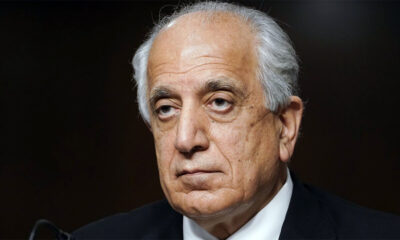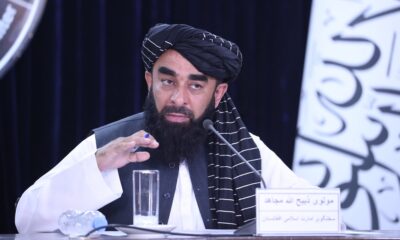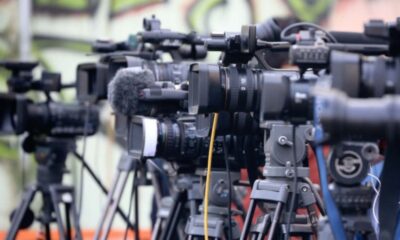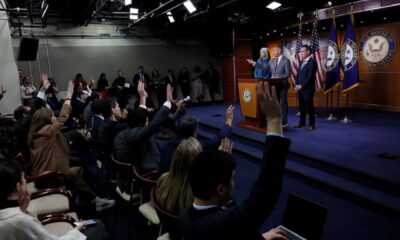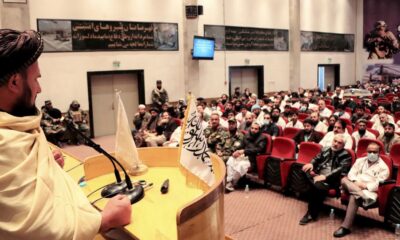Latest News
Khalilzad reflects on fall of Kabul govt and military
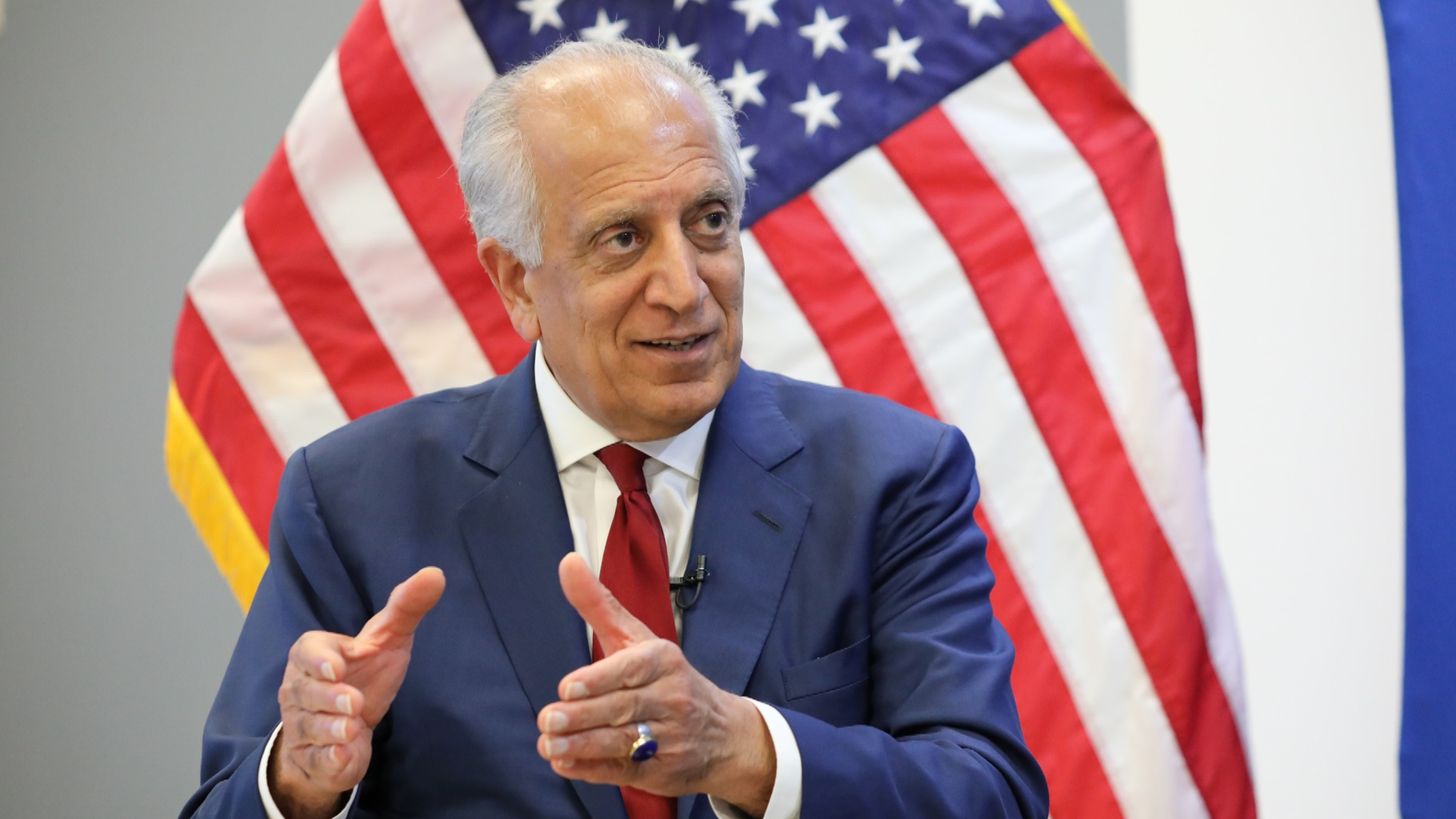
US special envoy for Afghanistan Zalmay Khalilzad said this week that many questions remain unanswered on why former president Ashraf Ghani fled the country unexpectedly and why the Afghan military forces dissolved within just a few hours.
He also stated that in his opinion, the leadership of the former government made a “grand miscalculation” - that the US would never withdraw its troops.
In an interview with Foreign Policy on Tuesday, Khalilzad said: “Why did President Ghani do what he did? Why did the forces behave the way they did? The question is, you know, we invested so much in this force. The numbers were impressive on paper, the capabilities were there, internal weapons, air power - especially special forces of the military, which we thought was quite significant and capable and dedicated, some of them, that perform extremely courageously as individuals, as units.
“There were forces at work for our various other agencies that were all there. What happened?,” he asks.
He said while the US did not have information yet on the issue it does seem the security forces were left fighting for a government they didn’t want to defend.
“We haven’t done enough work to say what definitively happened in terms of that. But that’s what it looks like,” he said.
“And there have been some quick assessments of why, even as districts were falling, people saying that many commanders were changed. There are others who say, you know, people didn’t think this thing was worth fighting for.
“Could it be the standing of the government changed with the soldiers because of corruption and perceptions of corruption? I don’t know; we don’t know. This will take a lot more time,” he said.
Khalilzad also said many Afghans complain that the US pushed Ghani too hard, while others have said Ghani should have been pushed harder on the negotiations.
He said he thinks Ghani may have been “ill advised” but that no one, except some individuals, expected the military and government to collapse so quickly.
“People thought it might take years if it happens. Then as these districts started to fall, some people shrank the time that it might take.
“But Ghani, whenever I saw him and when the secretary (of state Antony Blinken) spoke to him the night before all of this happened, he was of the view that even after our departure (troops withdrawal), sometimes he would say it was a blessing.”
Khalilzad said he had many conversations with Ghani in the lead up to the collapse of the former government, but the former president was “of the view that the Talibs (IEA members) would not be able to win militarily.
“He believed that very, very passionately and strongly until, I think, they (the IEA) were surrounding Kabul.”
He said in reference to the Doha talks between the US and the IEA, which led to the Doha deal in February last year, that he “respects those who say we shouldn’t have negotiated with the Talibs (IEA) without the government being there.”
He said commentators “don’t deal with the underlying forces or balance that caused us to do that which was that we were losing ground”.
“Since after (former U.S. President Barack Obama’s) surge, each year we were losing ground to the Talibs (IEA), meaning Talibs (IEA) were taking more territory. So unless we agreed to another surge, time was not on our side.”
“I think that the grand miscalculation of the Afghan leadership was this: that we were not going to leave.”
He said putting a condition in place with the IEA that troops would be withdrawn only once an agreement was in place between the IEA and the former government, “could have been an option”.
“But there was a lot of pessimism here, whether the Afghans could ever come to an agreement with each other. And therefore, if you made it a tight condition; You’d never leave; in a sense, you’re saying you’re going to stay”
Khalilzad stated that in his opinion Ghani was reluctant to forge an agreement with the IEA as a new government would mean he might lose power.
“This new government idea meant that perhaps he wouldn’t have led the government. It took us a long time to get him to even appoint an inclusive delegation to go to Doha.
Khalilzad also said however that the IEA played a key role in ending ISIS-K’s (Daesh) foothold in Afghanistan.
“I think on ISIS, they played a vital role in ending the territory of ISIS in Afghanistan. We will watch that closely. We are, this is obviously of vital importance, we hold them to their commitments on terrorism, including al Qaeda.
Khalilzad said that the US has made some achievements in Afghanistan over the past 20 years.
“People live longer, are more educated, wealthier. The physical face of Afghanistan, of Kabul, changed fundamentally. On the building of a vision - that of a democratic, self-sufficient, secure Afghanistan - I think we fell short together. And you have to learn from what happened.
“Could we have done things differently? Was there a problem of ends and means that our ambitions were too large compared to the strategy and resources?
“How we built the [armed] forces? Could it have been done differently to make it more resilient and more self-reliant and motivated to fight? Should we have pushed harder for a political settlement earlier? Yes, I reflect on those, and I will reflect on them for some time to come,” he said.
Latest News
IEA should learn from Syria’s al-Sharaa: Khalilzad
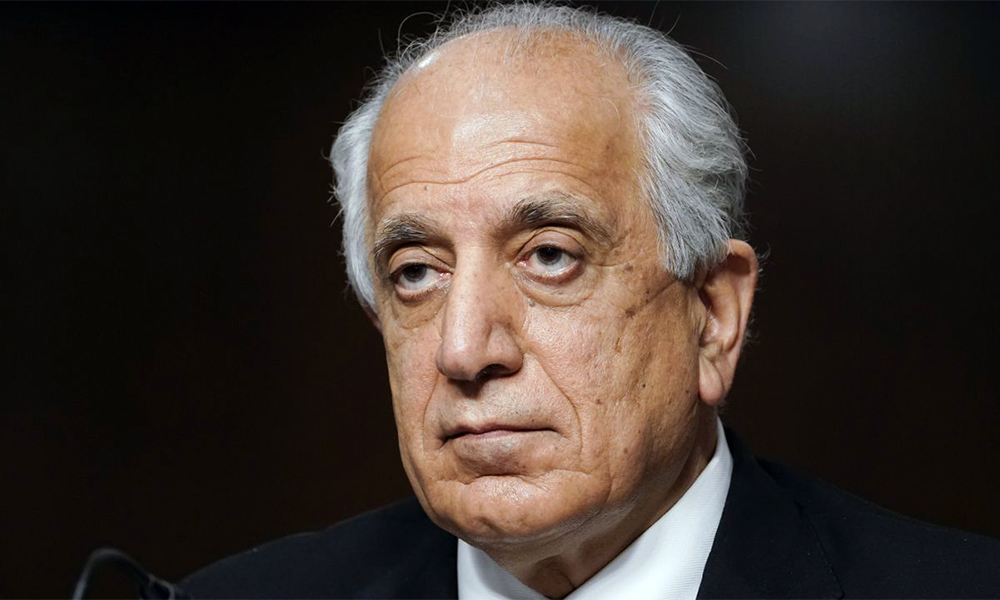
Former US envoy for Afghanistan peace, Zalmay Khalilzad, said on Saturday that the Islamic Emirate of Afghanistan (IEA) should learn from Ahmad al-Sharaa, leader of Syria’s Hayat Tahrir al-Sham group, on how to join the mainstream international system.
He noted on X that the US bounty for the arrest of Ahmad al-Sharaa is being removed.
“Others in similar circumstances can learn from Ahmad al Shara how to join the mainstream international system. Are the Taliban paying attention?” he said.
Ahmad al-Sharaa has said that there are many differences between them and the Islamic Emirate.
He has said that he will not prevent the education of women and girls, respect the rights of minorities and will launch an inclusive political process.
Latest News
Afghan men must stand with women to support viable future of country: US envoy
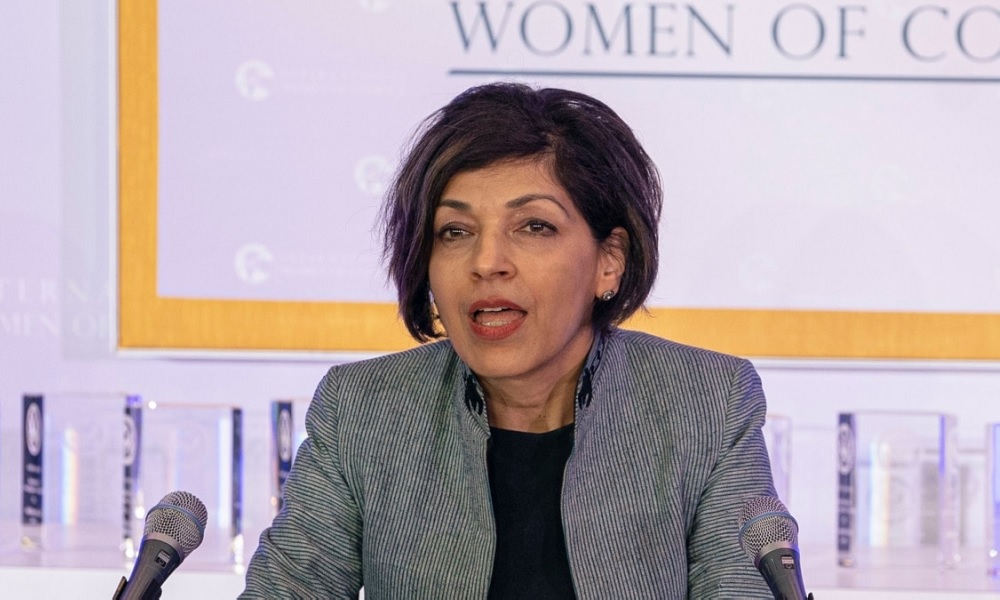
Afghan men, inside and outside the country, must stand with their wives, daughters, and sisters to support a hopeful and viable future for the country, Rina Amiri, U.S. Special Envoy for Afghan Women, Girls and Human Rights, said on Saturday.
The statement comes as the world next week marks two years since the Islamic Emirate of Afghanistan (IEA) banned Afghan women and girls from universities and women from working for nongovernmental organizations.
Amiri said an open letter on X that through these and more than 80 gender discriminatory policies, “the Taliban (IEA) have stripped women and girls of their agency, mobility, education, livelihood, voice, and access to life-saving medical institutes.”
She called on the international community to continue prioritizing human rights, particularly the rights of women and girls, in any engagement with the IEA. “Progress in improving diplomatic and economic ties must be meaningfully linked to concrete measures to reverse extreme policies targeting women and girls.”
Amiri also called on states, donors, academic institutions, and the private sector to match the resilience and creativity of Afghan women and girls with concrete support equipping them with resources, technology, education, employment tools, and economic opportunities.
“Afghanistan will remain in darkness so long as the dreams of Afghan women and girls are dimmed,” Amiri said. “The road ahead will be long, but hopelessness and resignation are not an option. “
“The world is being tested. If we fail Afghan women and girls, we fail women and girls everywhere and set a dangerous precedent that will be replicated elsewhere, far beyond Afghanistan.”
This comes as the Islamic Emirate has repeatedly said that the rights of women and girls are ensured in Afghanistan according to Sharia.
Latest News
Afghanistan gradually standing on its feet: IEA spokesman
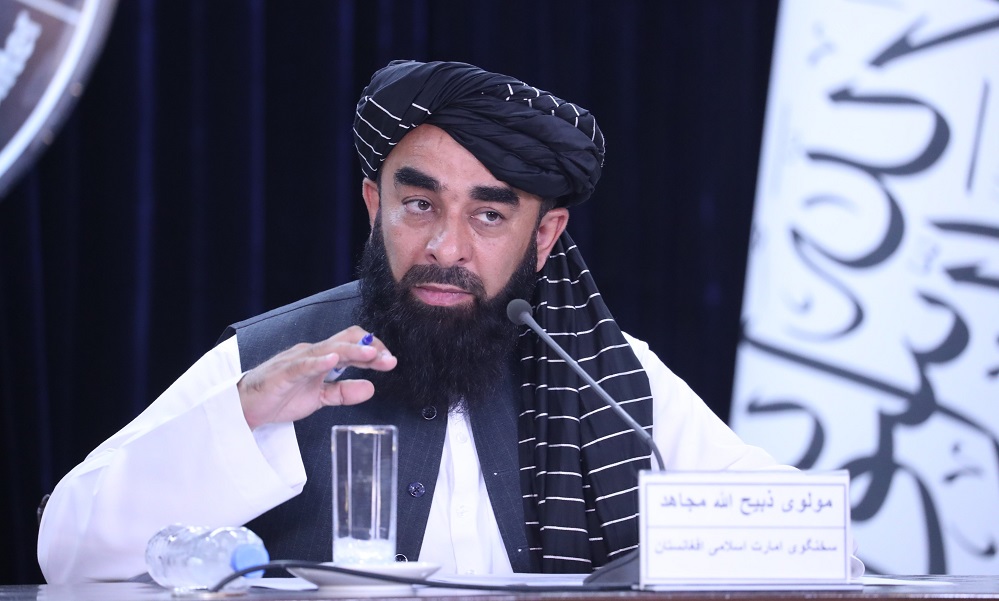
The Islamic Emirate’s spokesman Zabihullah Mujahid says they are working to strengthen Afghanistan's economy through the implementation of major projects, and the country is gradually becoming self-sufficient.
Mujahid stated that the start of projects like TAPI, Trans-Afghan, and CASA-1000 will create many good job opportunities.
“In general, other projects that have been planned are also being implemented. The CASA-1000 project will begin soon, and the Qosh Tepa project and other projects are already in progress,” said Mujahid.
"Gradually, Afghanistan is standing on its feet, and good job opportunities will be available for Afghans, which will have a positive impact on Afghanistan's economy,” he stressed.
Meanwhile, some members of the private sector have stated that economic development will be difficult unless the country solves its electricity production problem.
They believe that if the government expands electricity production, investments in various sectors will increase, and the unemployment rate will decrease.
Sakhi Ahmad Payman, the first deputy of the Chamber of Industries and Mines, stated, "Distribution of land and energy for industrialists is one of our work priorities. It will be very beneficial and effective for sustainable employment and advancing Afghanistan's industry."
On the other hand, experts believe that Afghanistan has good potential in electricity production, and if the IEA can attract more investments in this area, the electricity shortage problem will be permanently solved, leading to significant growth in all sectors of the country's economy.
-

 Sport5 days ago
Sport5 days agoATN to broadcast exciting 2025 ICC Champions Trophy live in Afghanistan
-

 Sport5 days ago
Sport5 days agoLanka T10: Jaffna Titans maintain unbeaten streak with 4th win
-

 International Sports5 days ago
International Sports5 days agoWinners of The Best FIFA Football Awards 2024 to be revealed Dec. 17
-
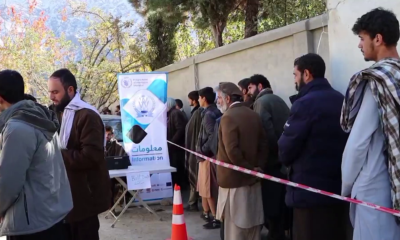
 Latest News5 days ago
Latest News5 days agoAfghanistan’s harsh winter intensifies struggles for vulnerable families: WFP
-

 Latest News5 days ago
Latest News5 days agoEU allocates 19.8 million euros to promote economic growth in Afghanistan
-
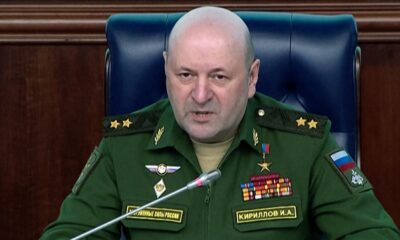
 Regional4 days ago
Regional4 days agoBomb kills chief of Russian nuclear protection forces in Moscow
-

 Sport4 days ago
Sport4 days agoATN once again seals deal to broadcast upcoming IPL across Afghanistan
-

 Latest News4 days ago
Latest News4 days agoIndia hoping to import coal and marble from Afghanistan


